O nosso site Bahia Guide Service gostaria de usar Cookie no seu dispositivo para personalizar a sua experiência de usuário e para as nossas ações de marketing para fins de analítica. Ao clicar em “Eu concordo”, você autoriza o uso de Cookies, Conforme a Lei Geral de Proteção de Dados Pessoais, Lei nº 13.709/2018. Our site Bahia Guide Service would like to use Cookie on your device to personalize your user experience and for our marketing actions for analytics purposes. By clicking "I agree", you authorize the use of Cookies, in accordance with the General Law for the Protection of Personal Data, Law nº 13.709/2018.
9:00 a.m. pick up at the hotel (time can be ajusted according to your convenience).
Salvador is known worldwide for the richness and diversity of its cultural traditions, which are heavily influenced by its African ancestry and the mix of races and religions. But, there is another special ingredient that has made this city an even more interesting destination: our delicious cuisine!
Sophisticated dishes of European origin, mixed with spices and traditions from African cuisine, and a hint of the flavors and secrets from the cuisine of the Brazilian indigenous people, combined to make up the mouthwatering and magical Bahian food.
During this tour, we will visit one of the largest markets in the city to familiarize ourselves with the ingredients of our most famous dish: the moqueca! Palm oil, coconut milk, ginger, different kinds of peppers and the traditional manioc flour are part of the daily diet of the Bahians.
We will then go to the Pelourinho to visit the Museum of the Bahian Gastronomy, to delve deeper into the relationship between the cuisine of Bahia and that of the West African coast. It was the exchange of knowledge, ingredients and products from both cuisines during the colonial period that led to the creation of most Bahian dishes.
Cooking time! We will now be ready to participate in a real cooking class, where experienced cooks will share the secrets around preparing moqueca, so that we can enjoy Bahia’s delicious fish stew followed by dessert.
Included:
Not included:

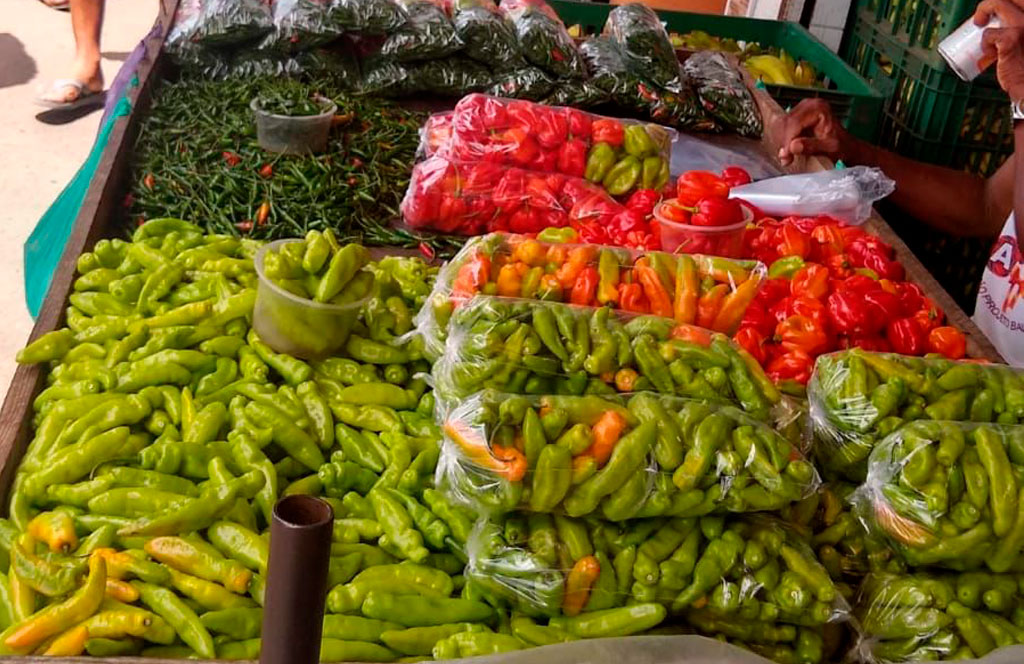
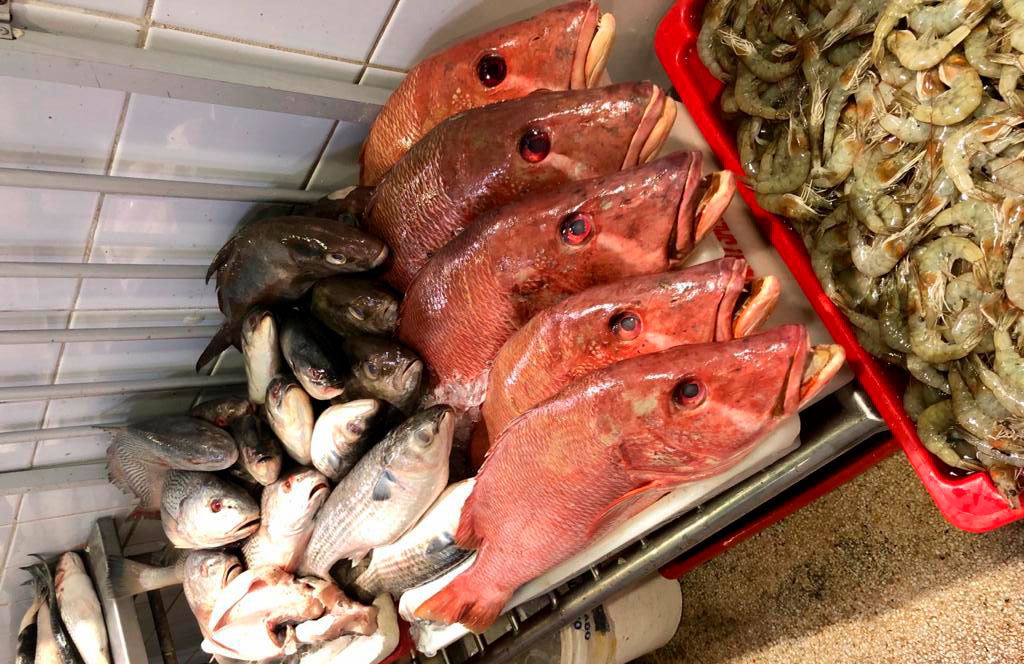
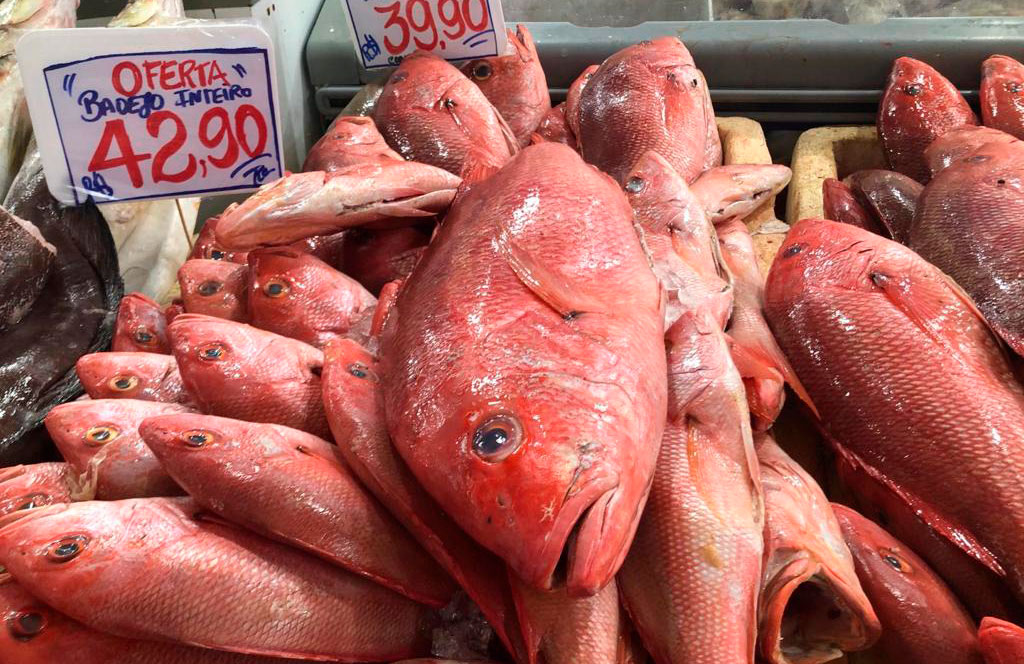

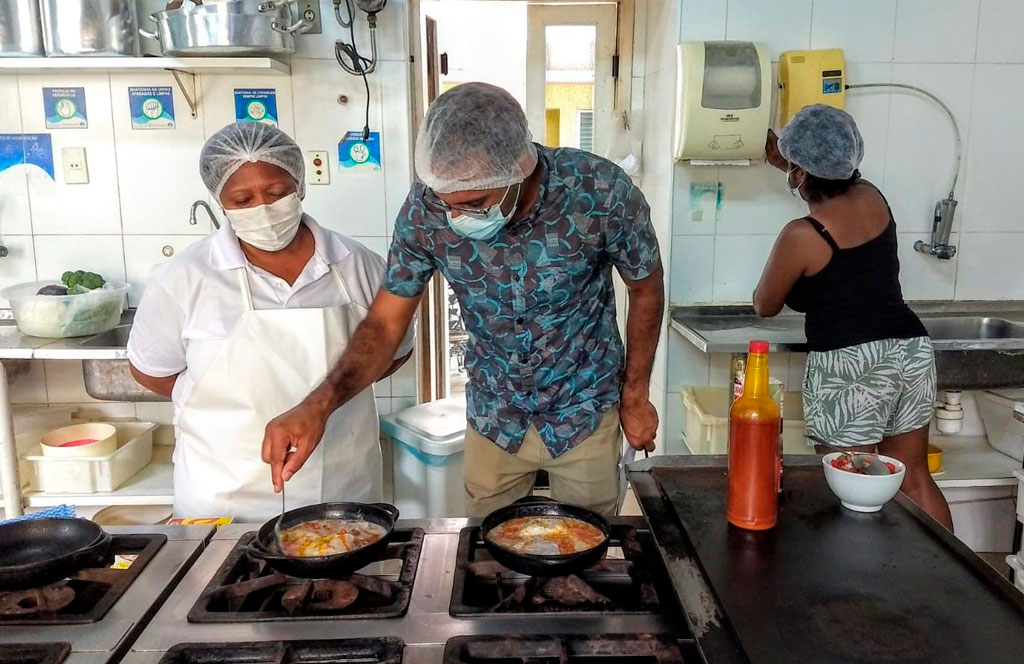

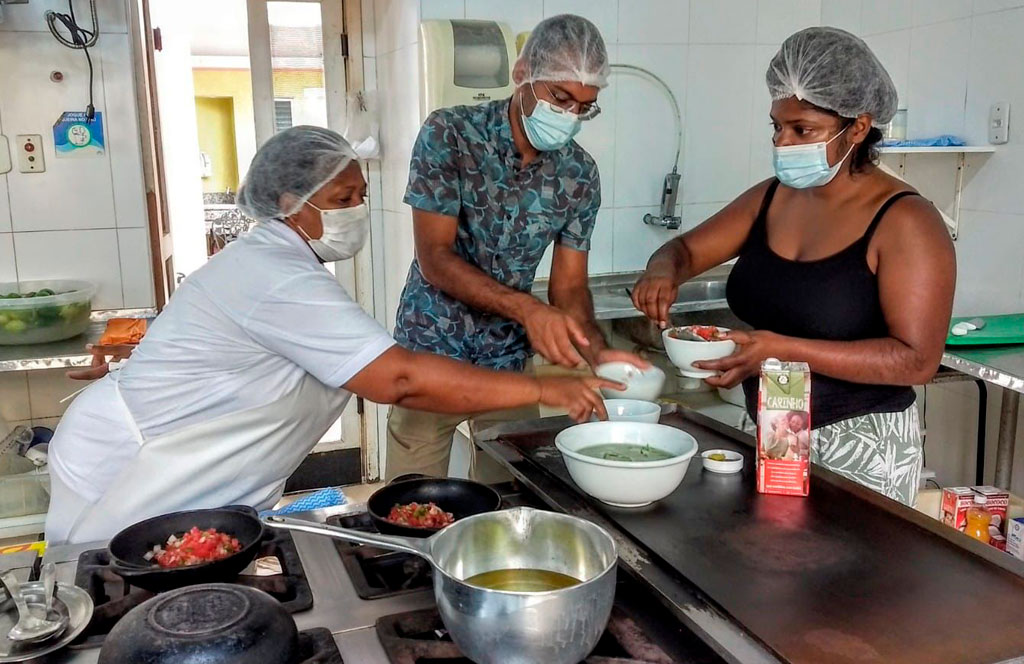

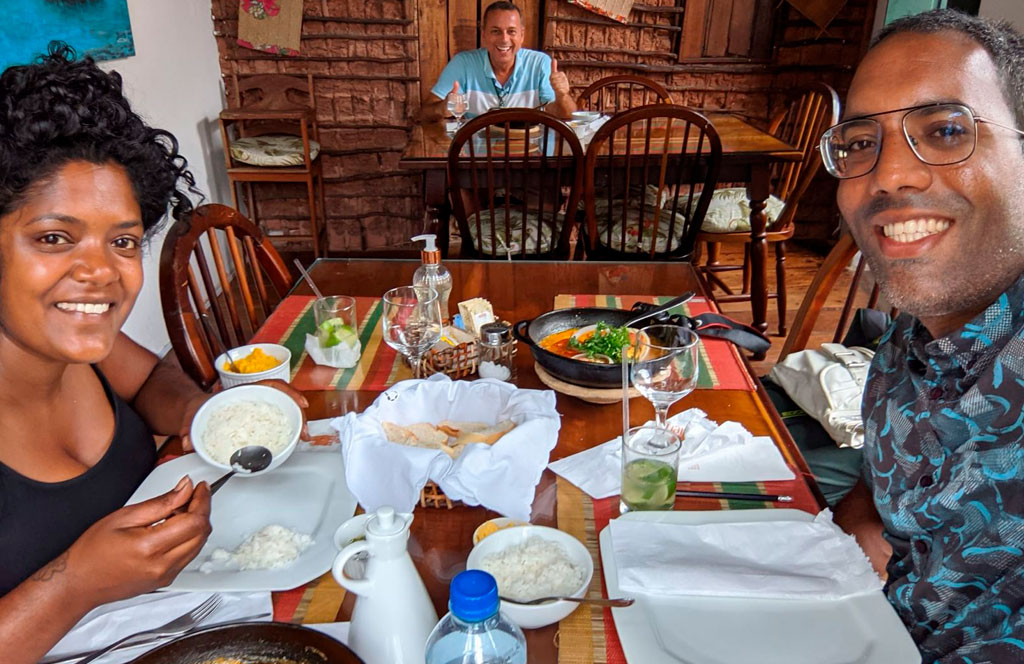
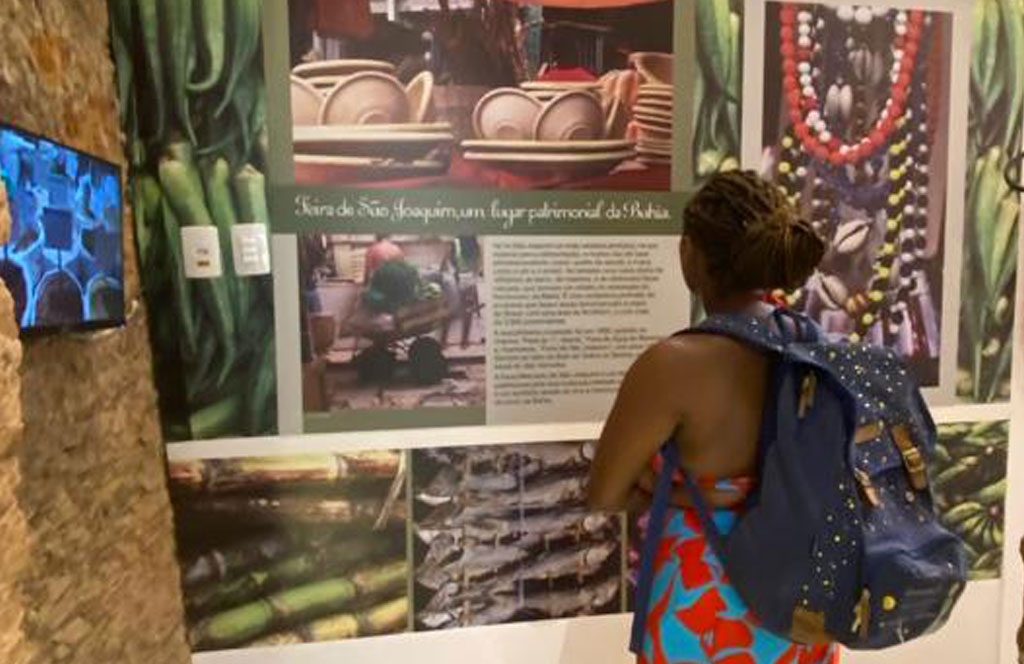
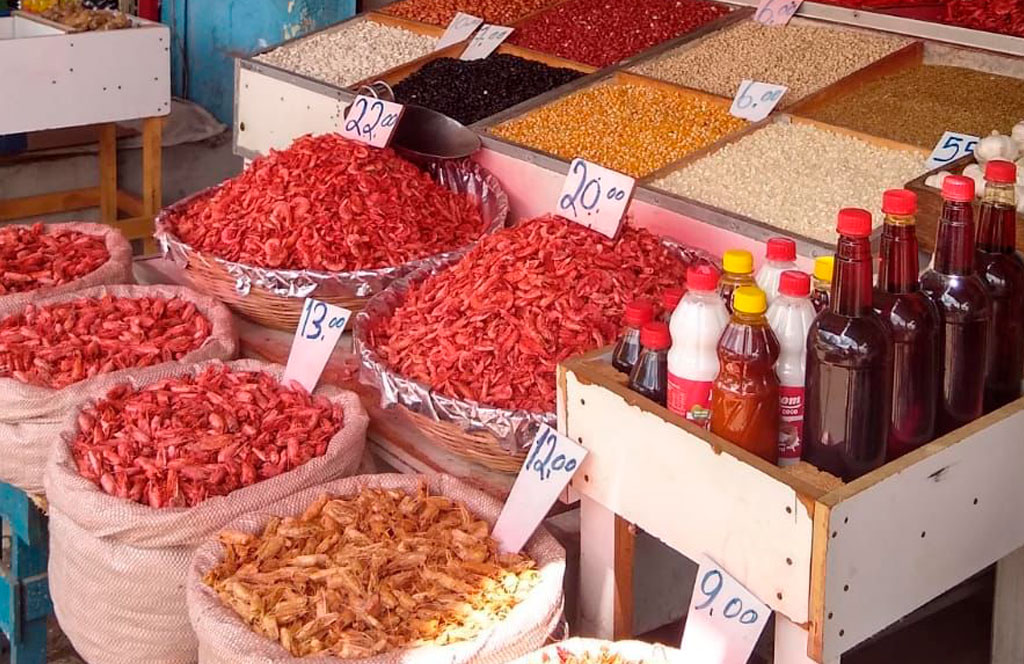
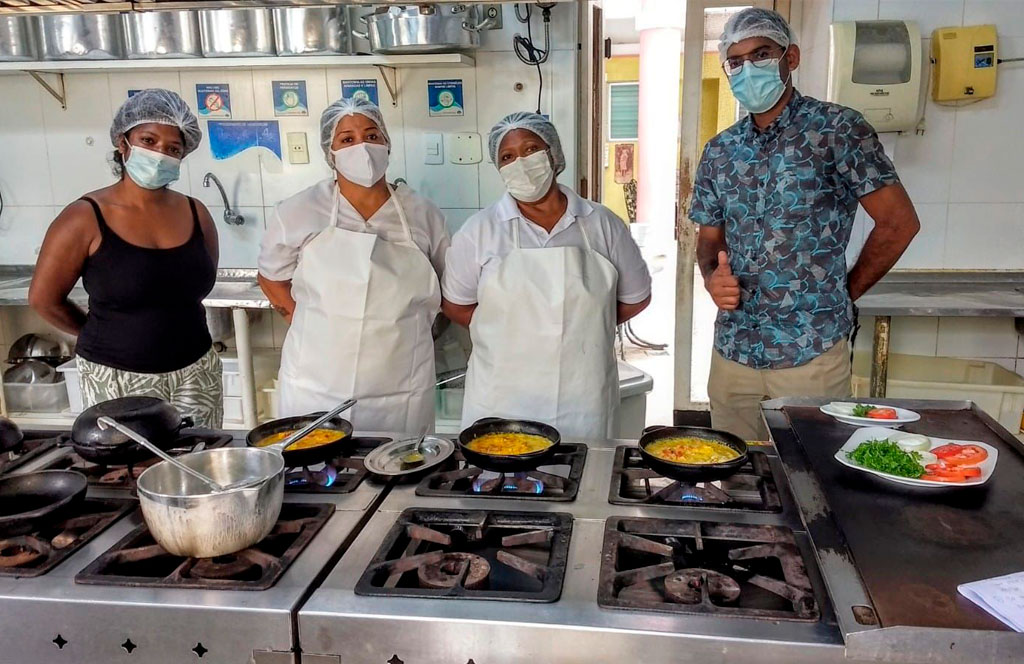
9:00 a.m. Pick up at the hotel (time can be adjusted according to your convenience).
Developed in Brazil in the 17th century by African descendants of the Bantu ethnic group, capoeira is a cultural expression that combines martial arts, sports, dance and music. Currently considered one of the most important symbols of Brazilian culture, capoeira is practiced by many people around the world.
An element that distinguishes capoeira from other martial arts is the fact that it is accompanied by music. A good capoeirista must learn not only how to fight, but also how to play the typical instruments and sing. The music decides the rhythm and style of the game, which is played in a “roda de capoeira”. In this circle, the “capoeiristas” clap their hands and sing while two others start playing. All this happens to the sound of the berimbau, a string musical instrument made of a wooden stick, wire and a gourd, accompanied by drums, called atabaques.
During this tour, we will visit a capoeira school where a graduated master will teach us the instruments and strokes of capoeira. After learning the basic movements, we will teach us to play the instruments and the main strikes of capoeira.
Included:
Not included:
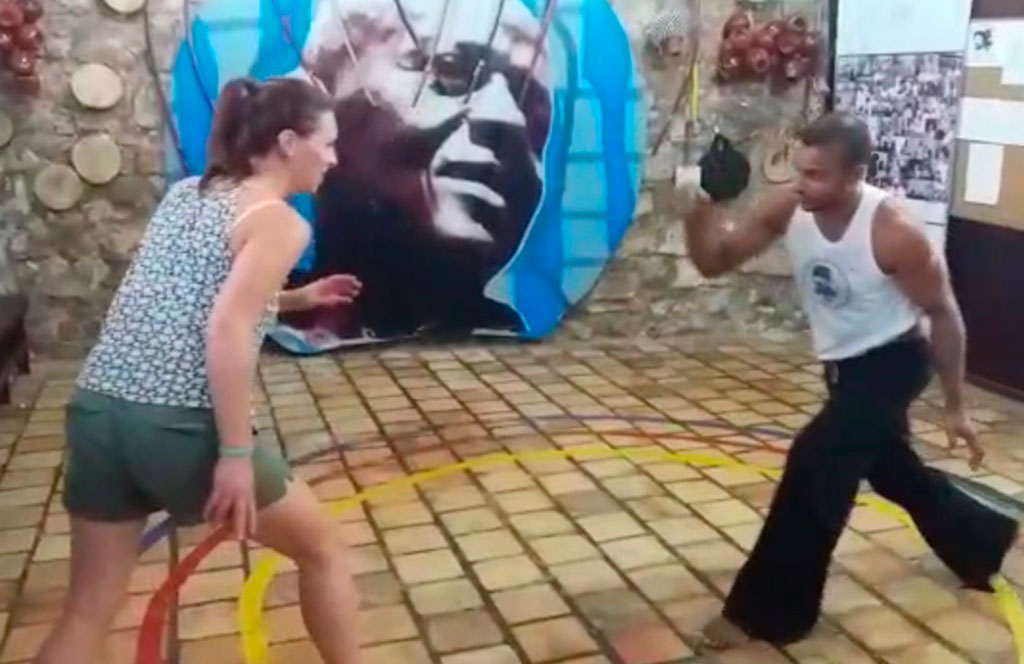
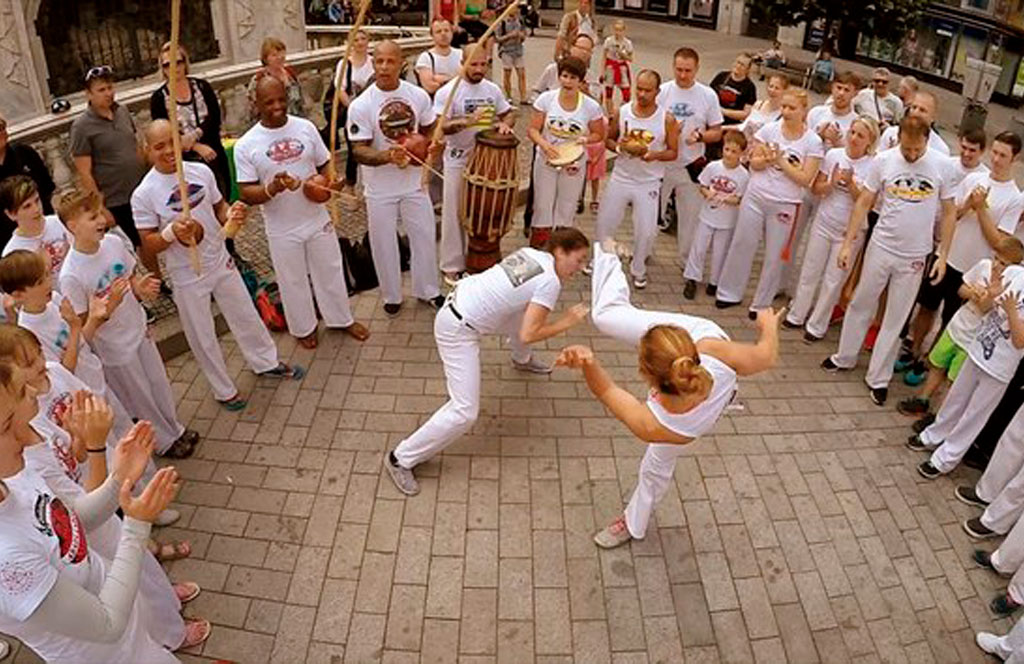
9:00 a.m. Pick up at the hotel (time can be adjusted according to your convenience).
The minute you arrive in Salvador, you will be enveloped, energized and moved by the city’s vibrant sounds and rythms. The historical musical instruments used in Bahia, in particular those brought by the various African peoples that gave birth to Brazil’s unique racial and cultural mix, create our city’s distinctive rhythm, music and dances. Berimbaus, drums, caxixis, rattles, agogôs, xequerês, afoxés, atabaques, reco-recos and cuicas give life to Bahia’s remarkable musicality.
During this 3-hour tour we will participate in a private class with an experienced local musician, who, in addition to sharing the secrets of Bahia’s musical instruments, will tell us about his connection with Candomblé, a religion of African origin of great importance in the city. We will be able to appreciate each instrument up close and learn how to play them, always guided by our teacher. It will be a hands-on class, literally!
If you are passionate about music, you cannot miss this unique sensory experience with us!
Included:
Not included:

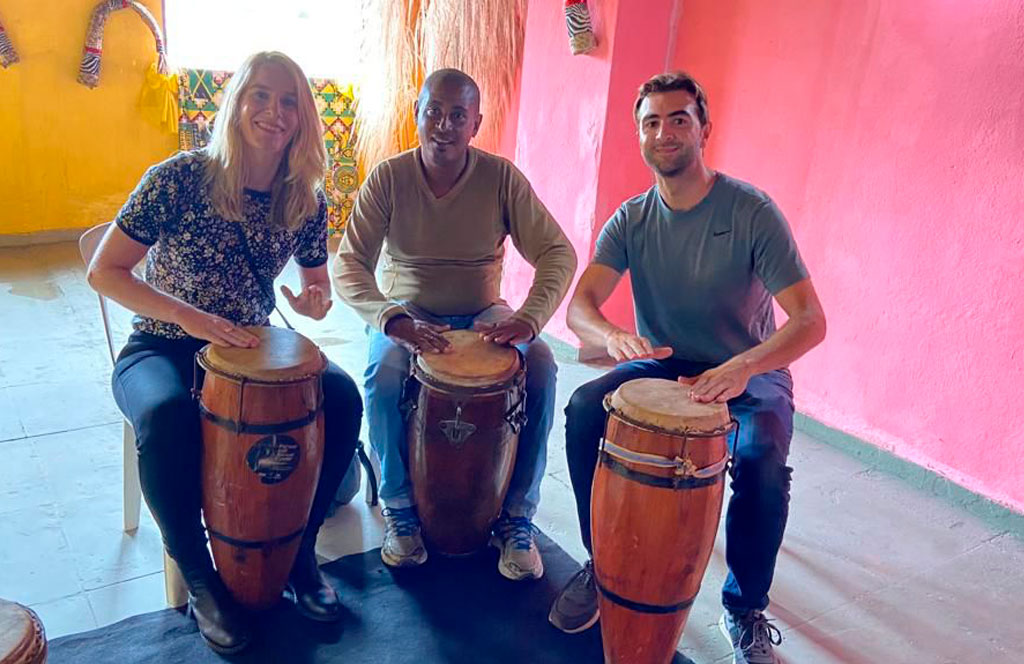
9:30 a.m. Pick up at the hotel (time can be adjusted according to your convenience).
We will start this incredible experience walking down the streets of Rio Vermelho, Salvador’s most bohemian neighborhood, where the traditional Festa de Iemanjá takes place every year and where the Bahian writer Jorge Amado lived.
Since we are talking about Iemanjá, the “Queen of the Sea”, we cannot fail to visit the fishermen’s colony and the Casa de Iemanjá (the House of Iemanjá) and learn about their offerings, which so well reflect Bahia’s religious syncretism.
And, because in order to come in touch with the essence of a community you must go to the market, we will continue to Cidade Baixa, where the São Joaquim Market awaits us with its vibrant colors and intense smells.
What an experience it is to walk through its alleys and taste the cachaças (the spicy, sweet, and fruity liquor distilled from fermented sugarcane juice), discover the leaves used in Candomblé to take the traditional baths, and talk to shop owners and customers alike who are always receptive and curious. We will learn about palm oil, coconut milk, cassava flour and the many kinds of peppers used in Bahian cuisine.
From here, we will head to the Museum of Modern Art, which is housed in a 17th-century mansion with a spectacular view of the All Saints Bay. Now it’s time to take a stroll through the community next to the museum and enjoy some of Salvador’s spectacular popular street art. This place is famous for its graffiti and social projects. We will finalize our tour by enjoying a typical Bahian lunch (not included) by the seaside, accompanied by a gentle breeze from the bay.
Included:
Not included:

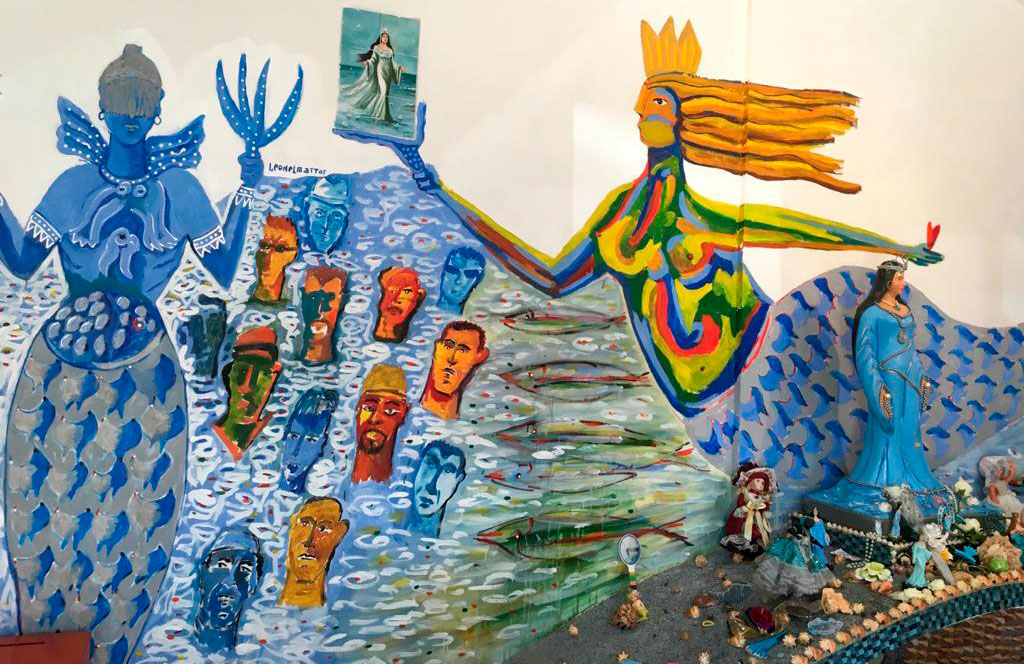
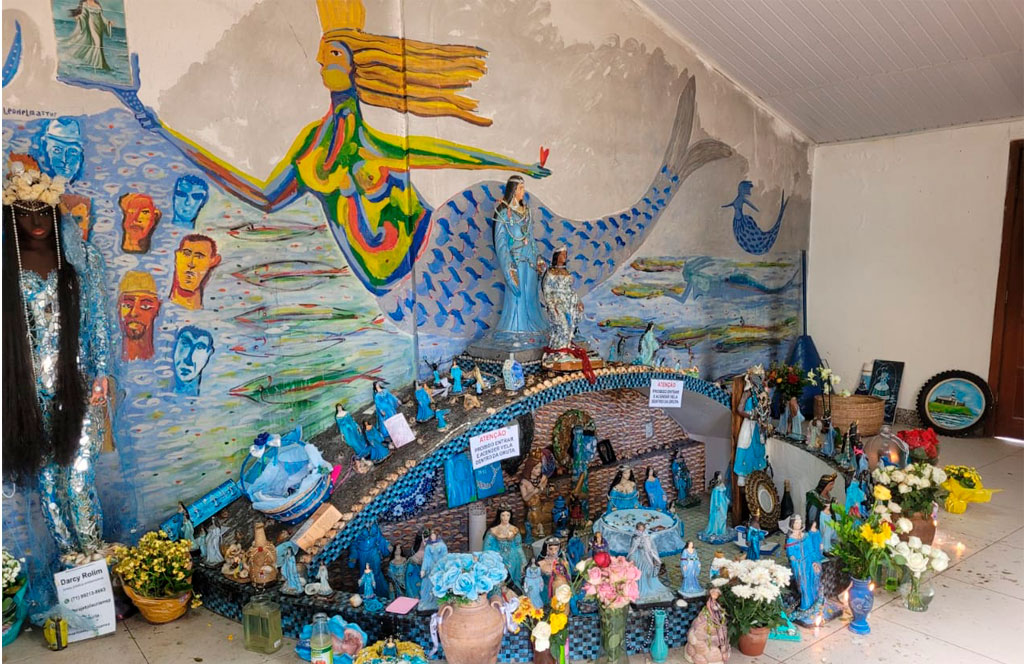
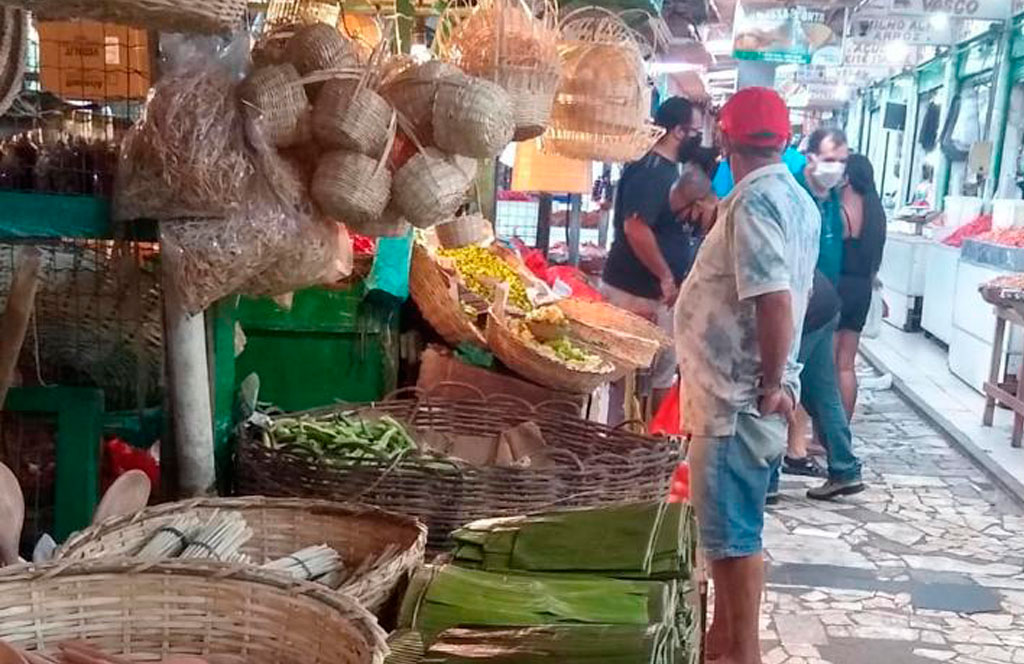
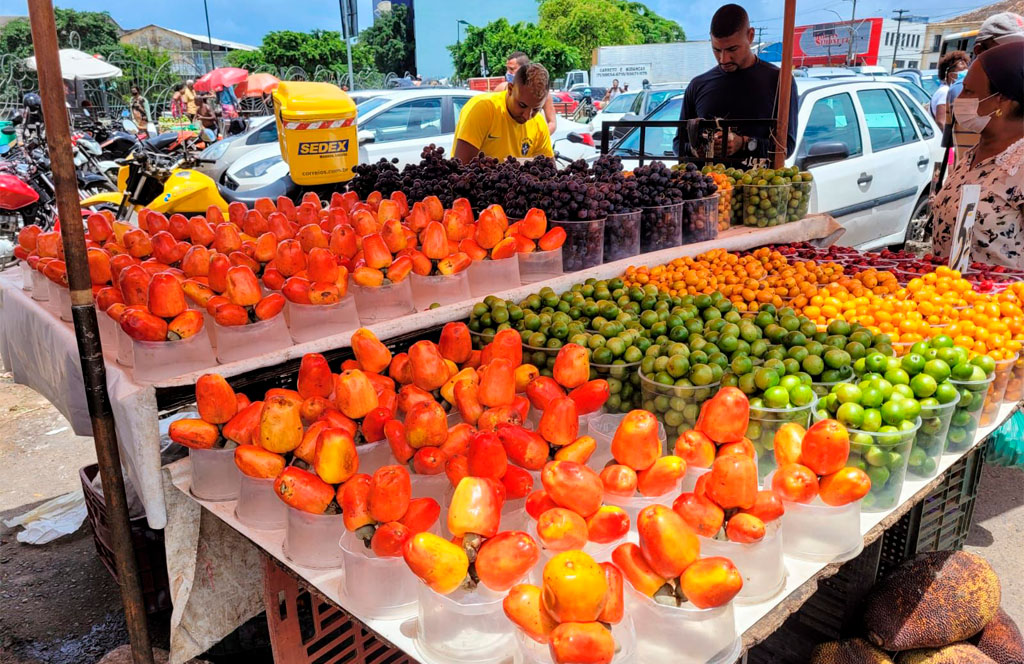


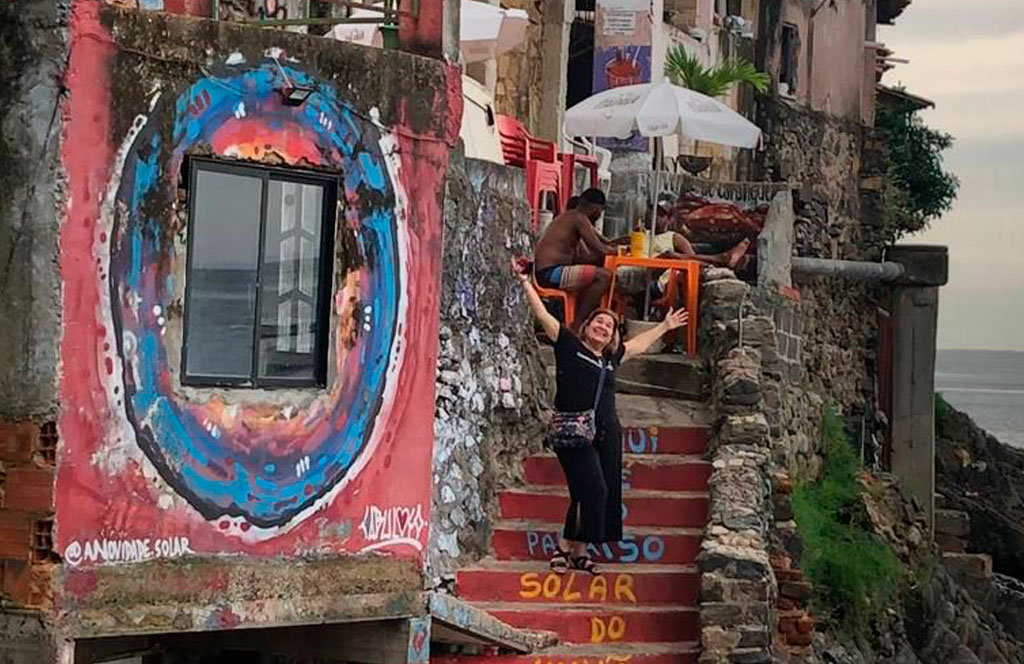
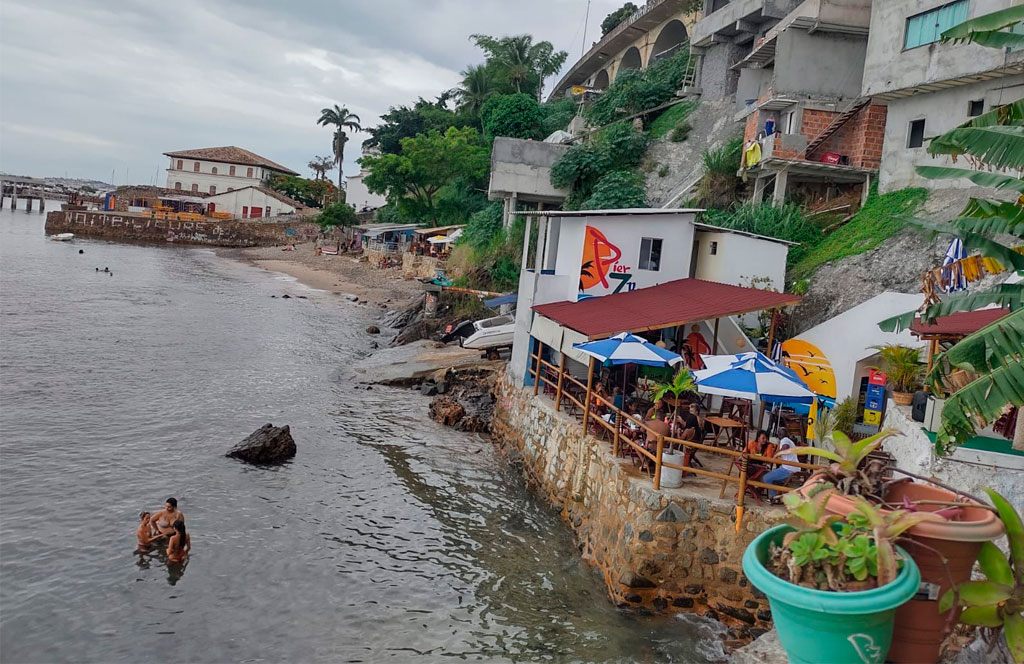
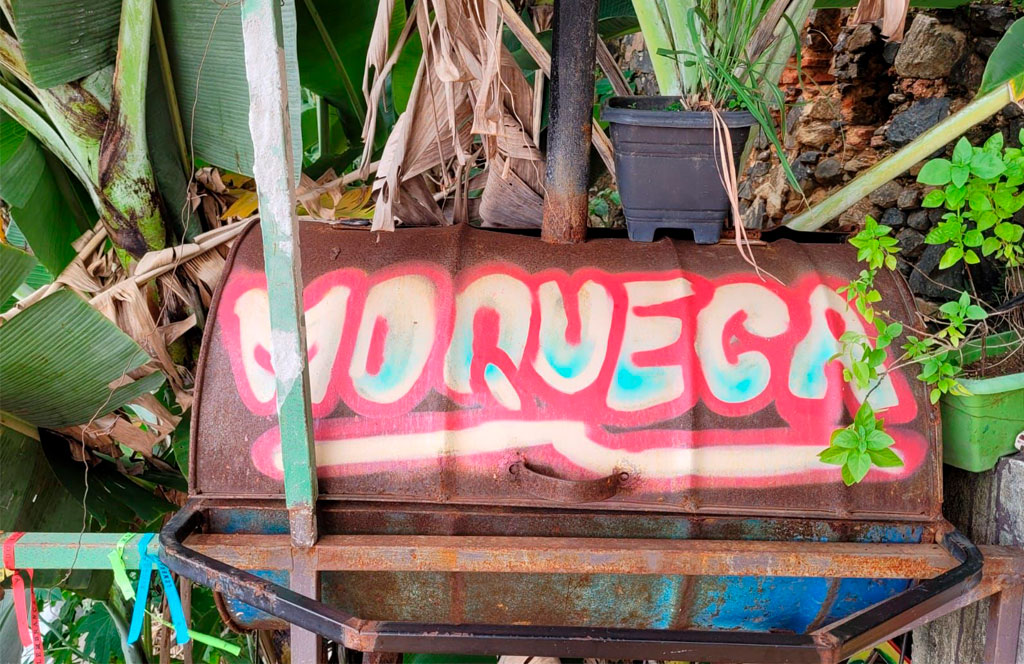
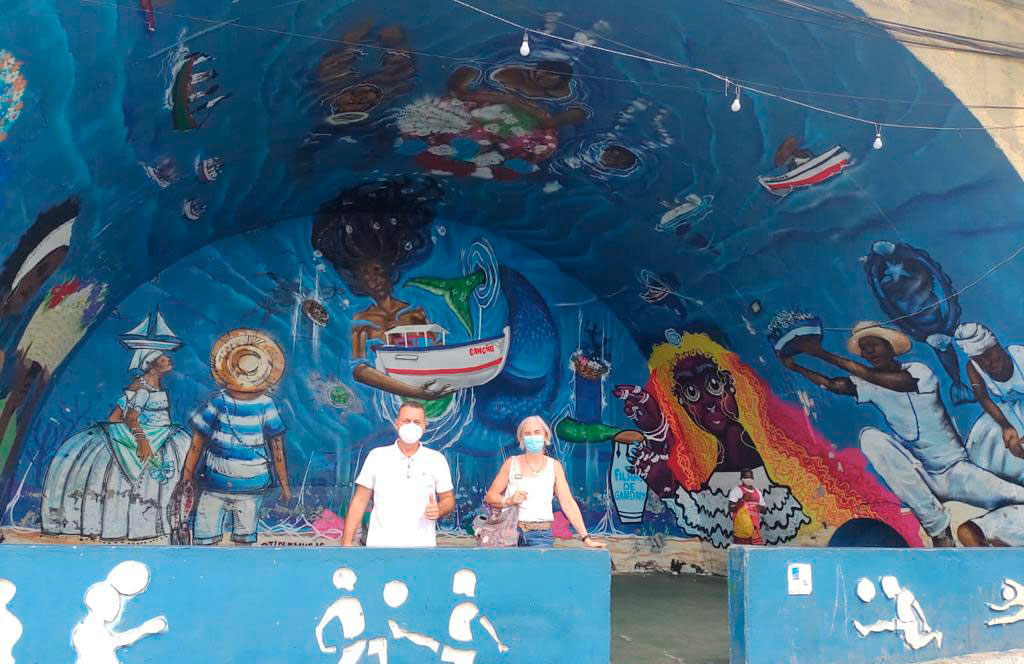

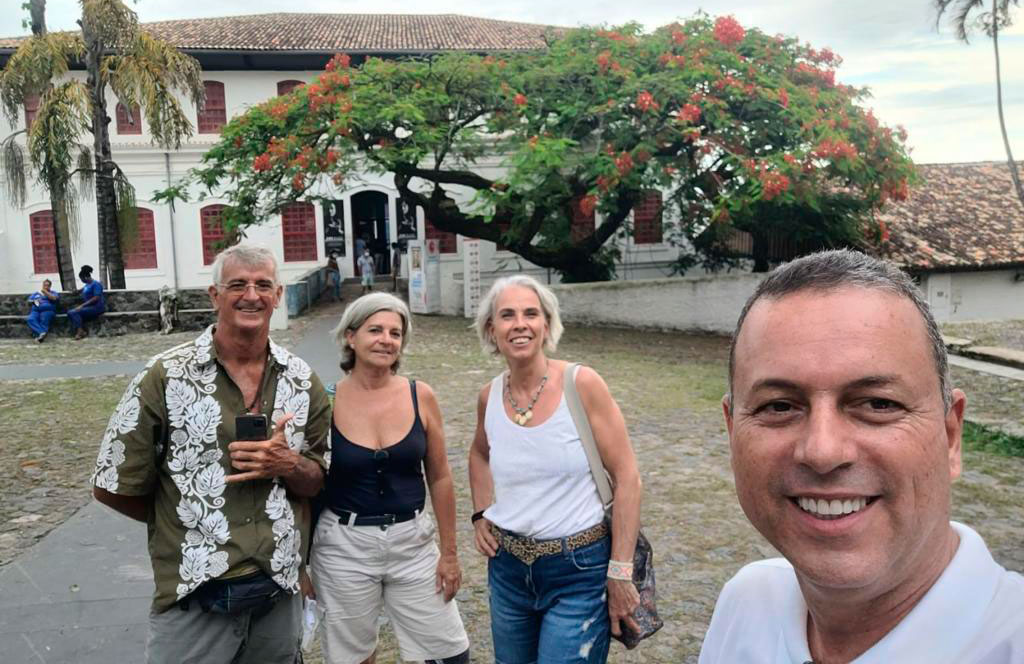
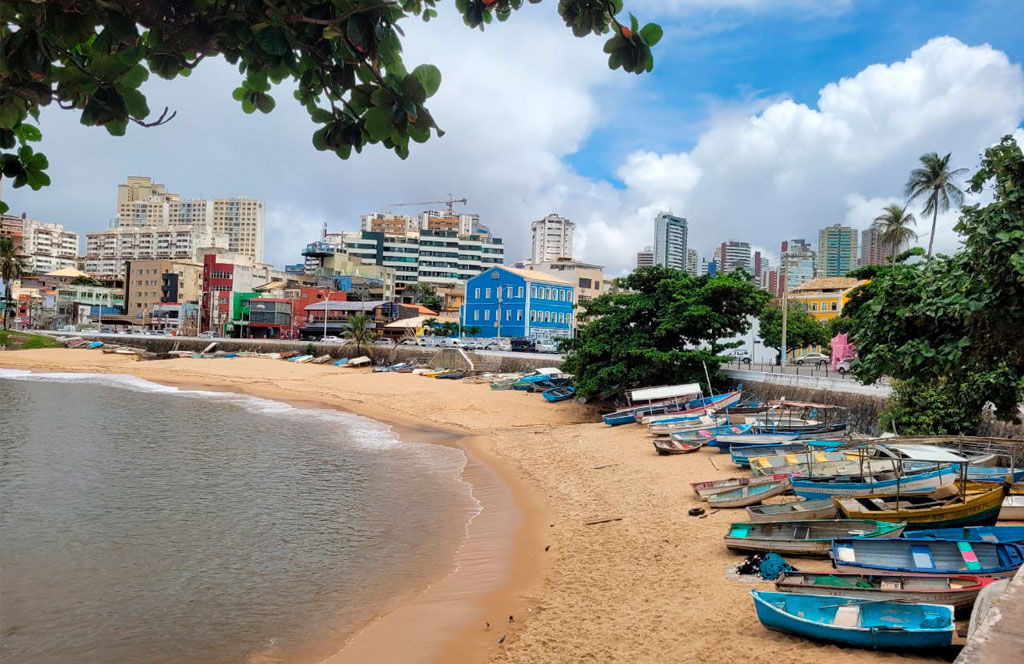
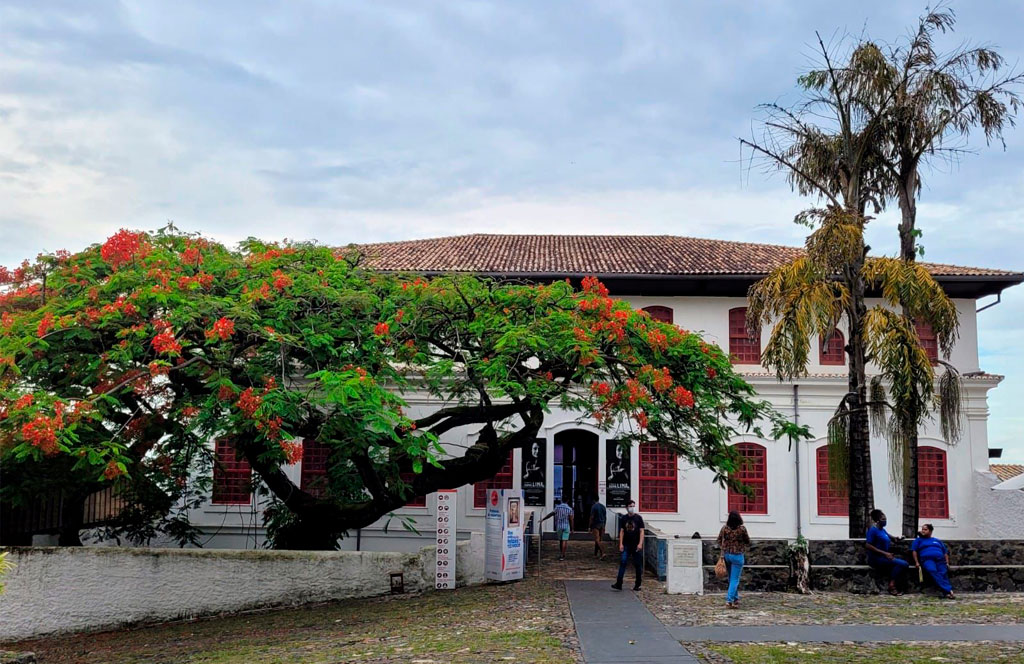
09:00 a.m. Pick you up from your hotel (time can be ajusted according to your convenience).
Salvador is known worldwide as – “the black capital of Latin America”-, for concentrating the largest community of Afro-descendants outside the African continent. Millions of Africans were forcibly brought to Brazil during the colonial period to work on sugarcane plantations in the Reconcavo Baiano. In this process of African Diaspora, a very rich cultural, historical, gastronomic and religious heritage was built.
Bahia considers itself a true African territory: 80% of the population in the state is of African descent, while this number reaches 54% of the entire population in Brazil. There is not a place, issue or custom in Bahia that does not present the marks and rhythms of what we refer as negritude.
In this 4-hour experience, we invite you to dive into this fascinating african history to learn a little bit more about the real soul of the city. We will start at the Dique de Tororó (lake), were we can appreciate the amazing sculptures of the orixás (African deities) done by the Bahian artist Tati Moreno, representing the strong faith of the baianos.
We will start our tour at a community, where we will have the privilege of being hosted in a terreiro de Candomblé, a place of worship for this widely practiced religion of African origin that has lots of followers in Bahia. We will learn about their religious rituals, festivities, music and clothing. We will also taste some of the typical Afro-bahian food that candomble practitioners offer to the Orixás (African deities).
From here, we will head to the heart of Salvador’s historic center, the Pelourinho, designated as an UNESCO World Heritage Site, where we will visit the Afro-Brazilian Museum (if the museum is not open, we will instead visit the Casa do Benin).
Included:
Not included:
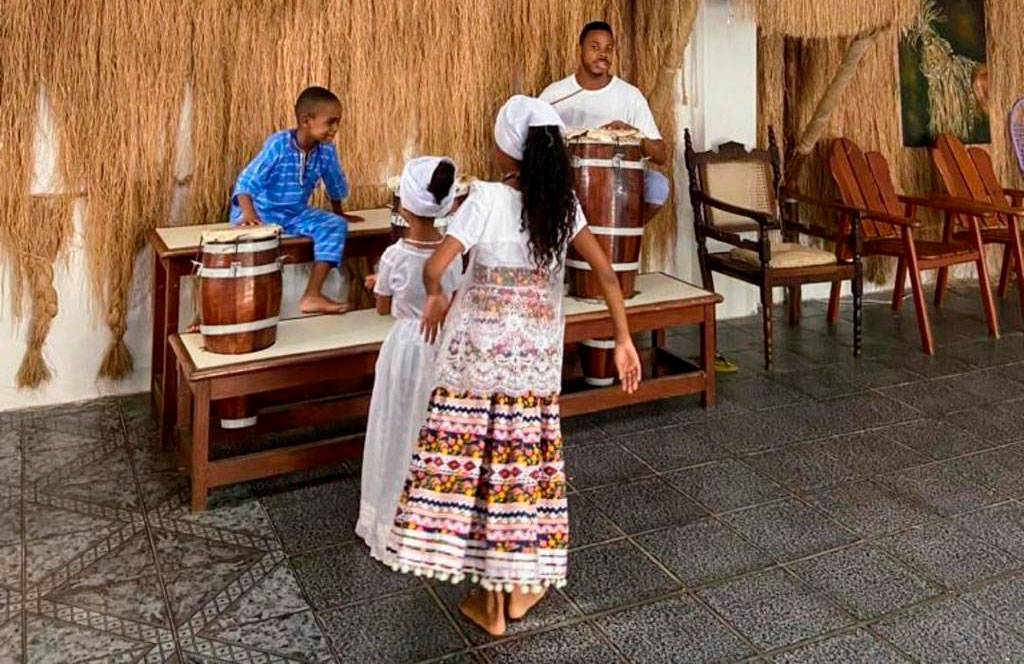
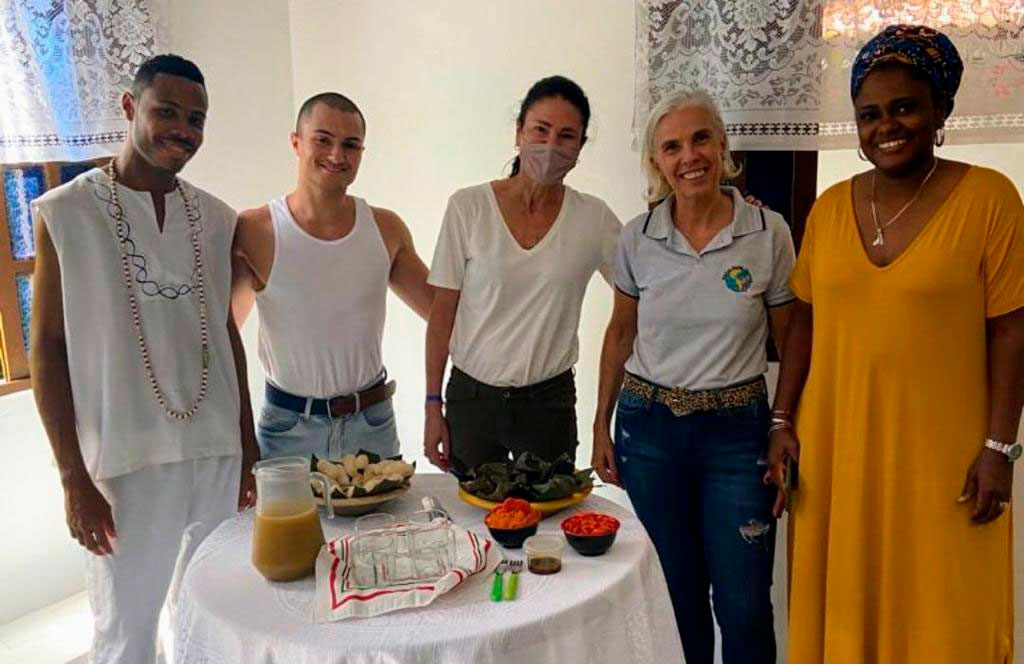
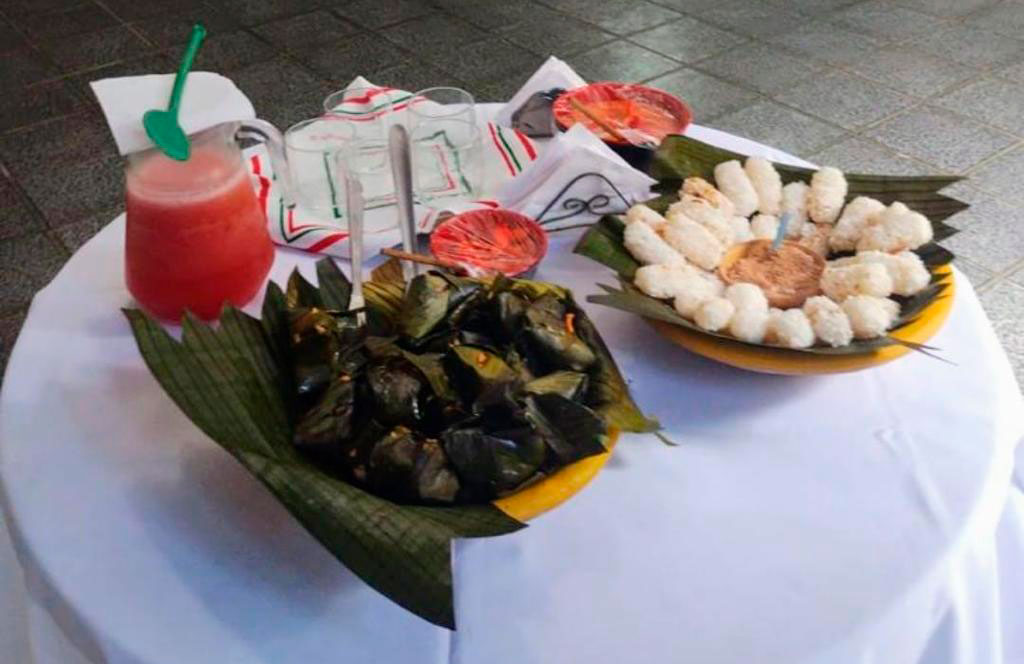
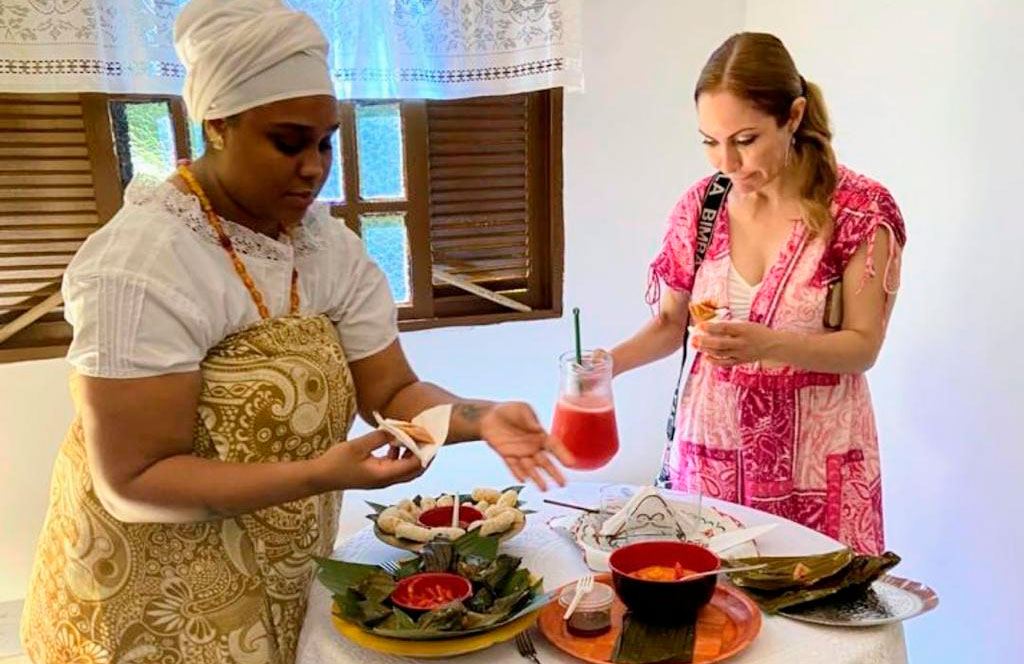
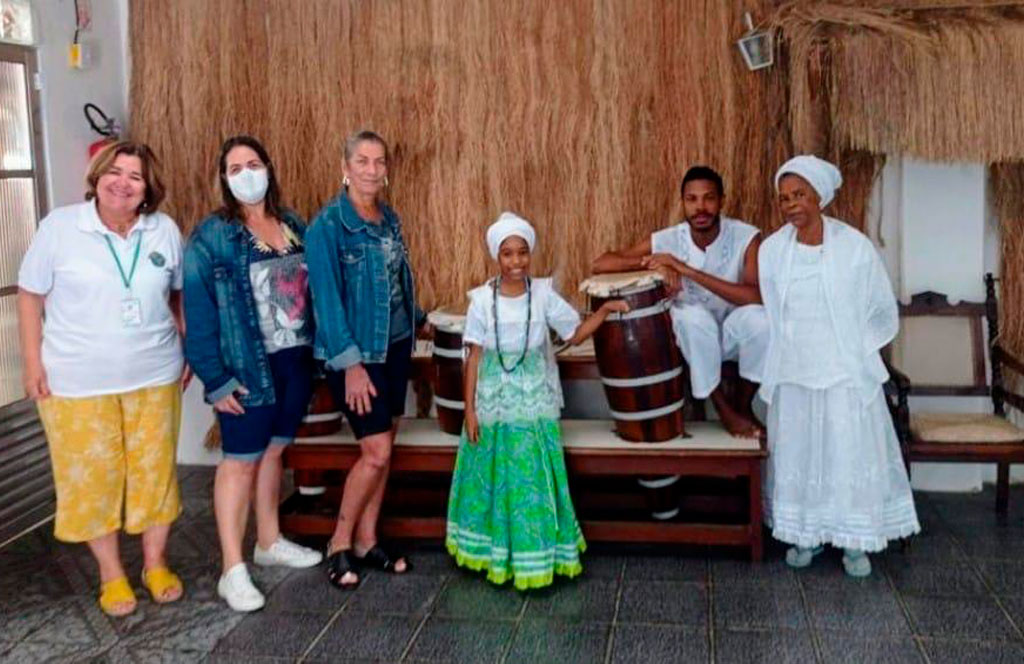
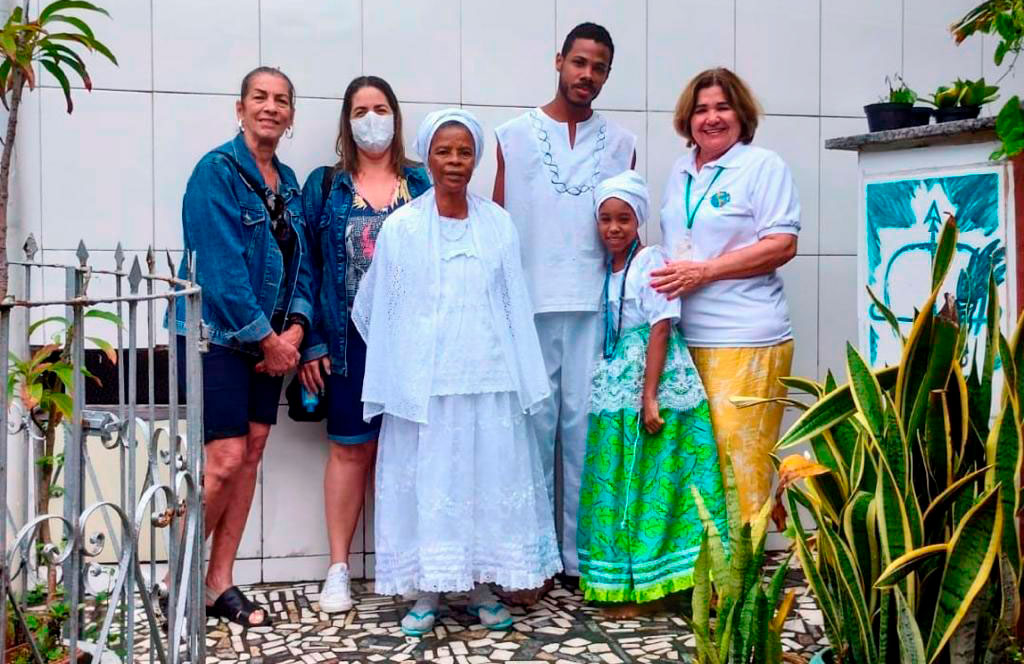
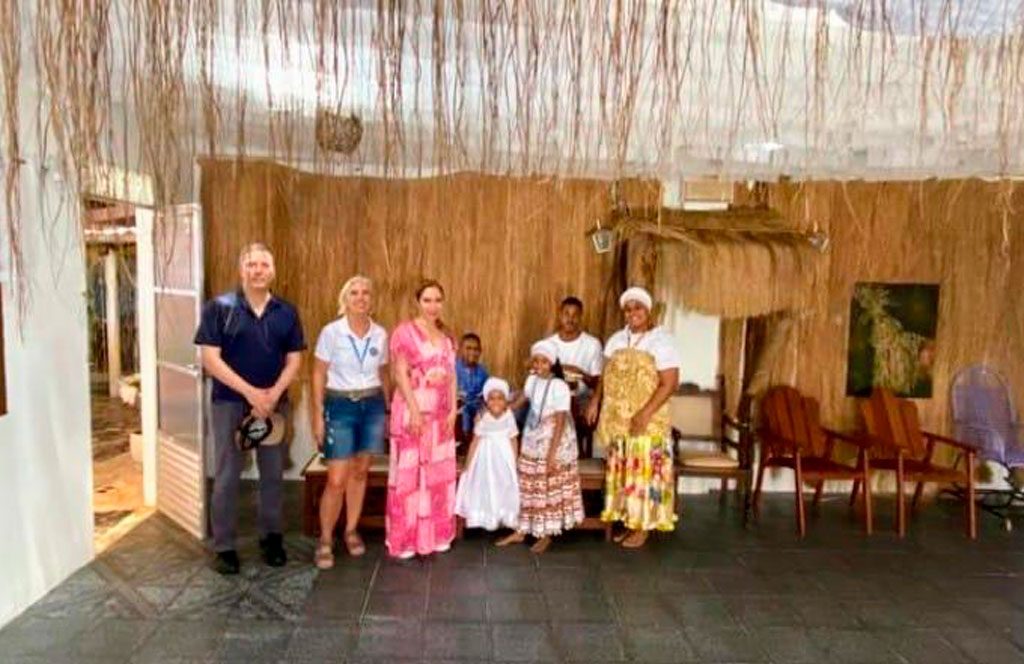
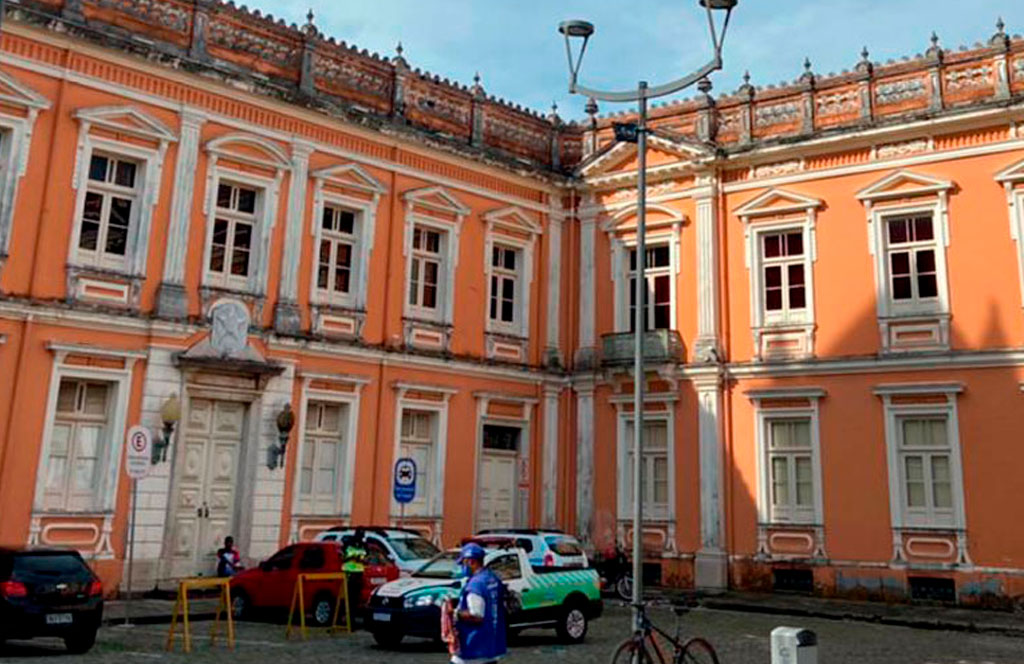
Copyright © Bahia Guide Service 2005 - 2025. Todos os direitos reservados. Desenvolvido por Weet